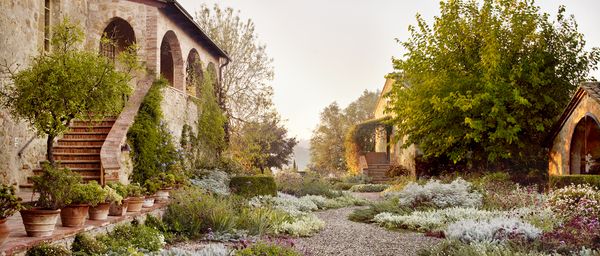Luciano Giubbilei is one of the world’s most notable landscape and garden designers. The secret of his success lies in the poetic aesthetics of his projects, in the dialogue with people who inspire him – and in discovering the quality of slowness.
Sometimes even great people find true beauty in the small, simple things. Luciano Giubillei is one such person: ‘A vegetable garden can develop its very own intensity,’ he explains. ‘There is something methodical about gardening, but there is also something contemplative about it. It generates a deep feeling of joy, peace and calm.’ For the landscape and garden designer this is a pure quest for meaning and an expression of this faint melancholy that resonates in his work. He is attracted to magical places. An exchange of energy on an ethereal level.

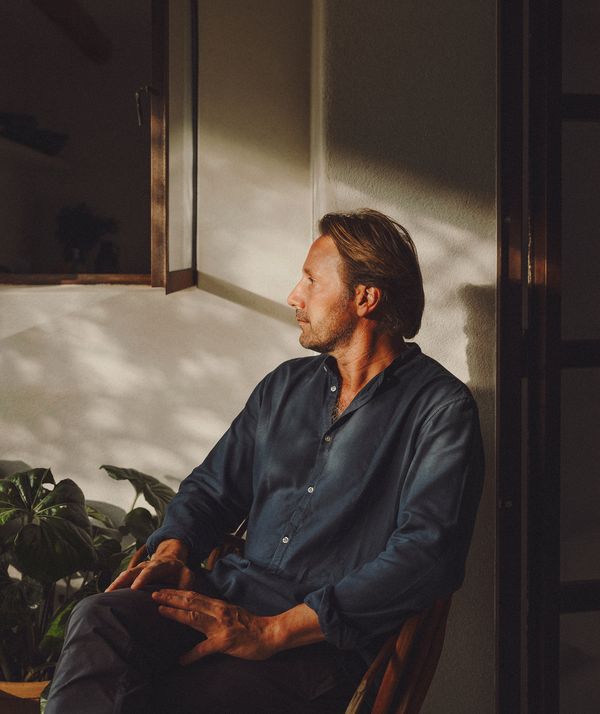
The power of rituals and repetitions
One such magical place for him is Tuscany, his native region with its distinctive scents, colour nuances and tones. Luciano was born in Siena, where architecture and natural light had a formative influence on him from his early youth. Another influence was his grandmother, with whom he grew up and who taught him to value simplicity and grace. She also taught him about the kind of calm flow that can be found in rituals in repetitions, a subject that emerges time and again in the course of his work.
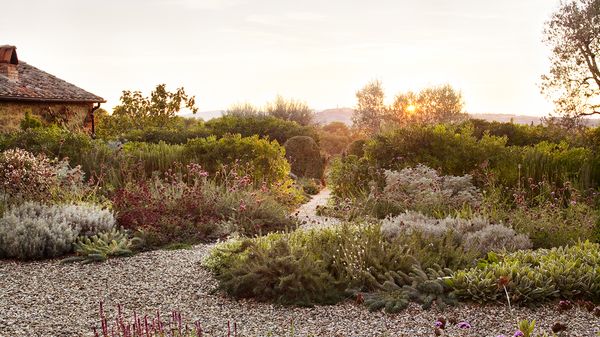
Beautiful grace and simplicity
In 2018, Luciano Giubbilei completed a wonderful landscape project in Val D’Orcia in Tuscany – a combination of native, traditional and contemporary influences that harmoniously merge with the features of the landscape. It is a historical vineyard with a large vegetable garden. Hornbeam hedges provide him with the framework, a pergola covered in wisteria and roses forms the centre axis, flowing water in a fountain adds sound and light reflections. In between are vegetable beds interspersed with flowers, drawing on the tradition of English vegetable gardens and medieval monasteries.
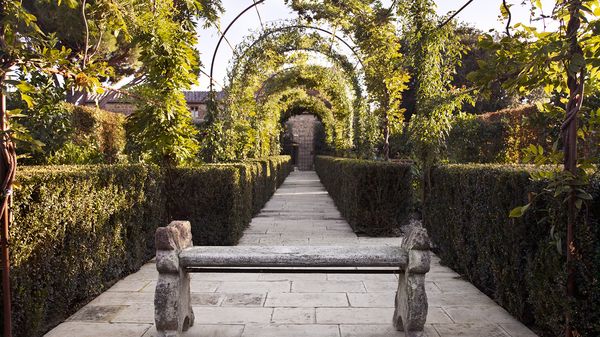
An instinctive and creative process
The playful contrast of light and shade, geographical structures of repetition and variation and an element of motion that gives the garden its personal touch: for Luciano Giubbilei, the creation of a garden is an intensive process reminiscent of the painting of a picture or the creative composition of a sonnet. When the designer starts to design, he spends a lot of time in the location and simply waits and listen. What form will the space take? What connection will be created and what kind of resonance? ‘An instinctive process,’ he says, ‘a bit like getting to know another person.’
The resonance principle
Yet the native Italian, who studied at the Inchbald School of Design in London, where he subsequently established his design studio in 1997, doesn’t just listen to his inner voice. Dialogue with other people, conversations with artists, painters and poets are an important source of inspiration to him. He says that he is always on the lookout for new schools of thought, new influences, and explains: ‘I need the reflection, the exchange, the corrective aspect. A large part of my creative process comes about through dialogue with other people and through dialogue with the landscape itself.’
Inspiration is found by sharing ideas
His current project on the island of Majorca can also be understood against this background, a pet project that came about in 2017. Luciano Giubbilei formed an artists’ collective in a former pottery in Son Servera. ‘It is a kind of atelier for experimenting and sharing ideas,’ he explains. ‘I want to bring together people with extraordinary skills and support others who are not yet that well known.’ Creative thinking and inspiration – in essence, that is what moves design and garden design forward and keeps on elevating it to a new level.
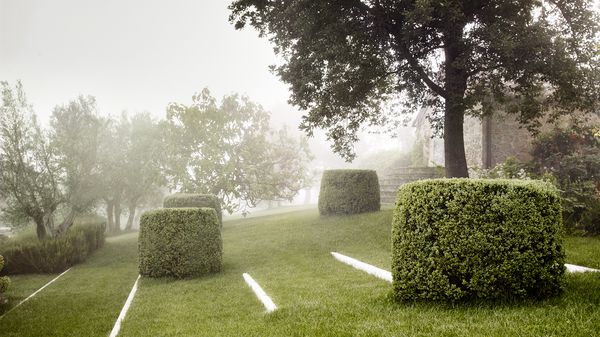
Perfection with a touch of vitality
It is a long relationship that can grow out of this – and has no real end. That’s because, for Luciano Giubbilei, the creation of a garden is an organic process that grows and changes and is always the start of something new. Gardening is essentially the art of working with organic materials, he says. The vitality that people see above ground has its origins underground. Constantly breaking up the perfection of his garden architecture with vitality and motion has become his trademark. He has won countless accolades and awards by combining strict hedge architecture, bushes, plants and sculptures with plants and even with garden herbs to create one organic whole. Projects are created in places where Luciano has maintained a long-term relationship. A relationship for eternity.
Photo: SALVA LOPEZ, ANDREW MONTGOMERY
